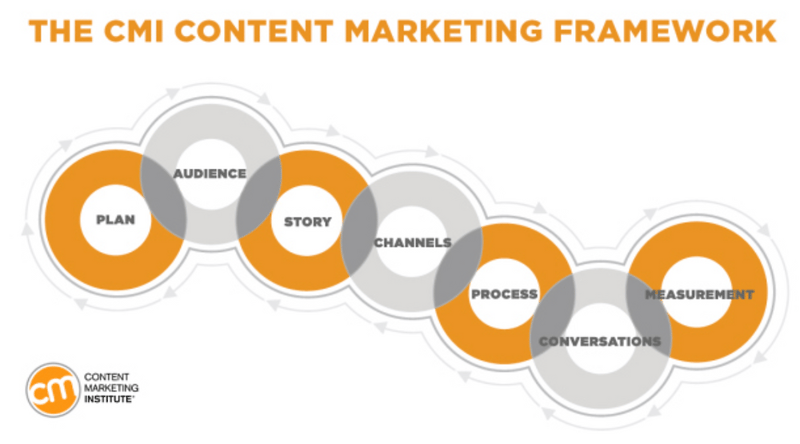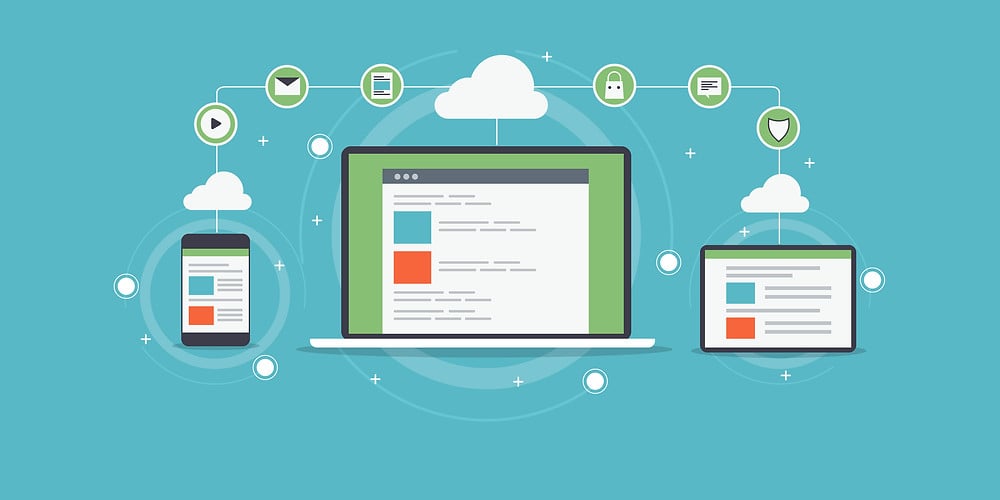Got content? Great.
Ready to promote it? Even better.
Don’t know how? Use a content marketing platform.
It’s that simple. We’ve already gushed over content marketing and just how amazing it is. It’s a sustainable, long-term investment strategy that generates positive ROI for businesses that create high-quality content and market it to the right people consistently. Seriously, what’s not to love?
The Essential Role of a Content Marketing Platform (CMP)
Content marketing is useful, sure, but without a Content Marketing Platform (CMP) in place, scaling your ROI-oriented campaigns to profitability gets much harder to do. And with so much content saturating the Internet, vying for customers’ limited attention isn’t as easy as it used to be.
Do yourself a favor: use a content marketing platform. We’ll tell you why.
What is a Content Marketing Platform?
A Content Marketing Platform (CMP) is a comprehensive software solution that helps marketers maximize the value of every piece of content they create. Businesses can drive brand awareness, generate high-quality leads, and monetize their content more effectively.
CMPs are highly scalable as well, turning data into actionable insights so marketers can make better informed decisions. According to Curata, they also “enable a multi-channel approach across four process areas: strategy, production, distribution (publication and promotion) and analytics." We agree.
Most content marketers have a laundry list of challenges they need to manage everyday. Content Marketing Platforms offer cohesive solutions by systemizing content workflows and enabling marketers to reinvest their time in other business-related activities. Some day-to-day challenges CMPs can tackle include:
-
Content strategies
-
Budget restrictions
-
Time constraints
-
Workflow and system management
-
Content publishing
-
Distributing content assets
-
Monitoring and measuring content performance
Good content marketing platforms address one or two of these challenges; great ones can handle them all. With the latter, marketers can launch structured content marketing campaigns and measure their impact over time. CMPs provide the following key features to help businesses with these important tasks:
-
Content creation options
-
Collaboration tools for different team members
-
Content optimization (keywords, SEO, etc.)
-
Scheduling/calendaring software
-
Workflow management/streamlining
-
Automated distribution and publishing tools
-
Business metrics
Not all Content Marketing platforms are created equal; however, some may offer everything you need while others lack the features you can’t live without. The platform you choose will vary based on your specific needs and what you hope to achieve. Smaller businesses with limited budgets, for example, may handle content creation themselves while using CMPs to manage their calendars. On the other hand, larger companies using multiple marketing software can save time and money by investing in a single, integrable solution.
Distinguishing CMPs from Other Platforms
What a content marketing platform isn’t
Content Marketing platforms are a lot of different things. Yet, at the same time, they’re not. Here are 3 other types of software content marketing platforms that are commonly mistaken for today:
1. MAP (Marketing Automation Platform): distribution software that amplifies content reach and measures the impact of demand and lead generation campaigns. Marketing automation platforms are lead-oriented, whereas CMPs are primarily content-focused.
MAPs automate repetitive marketing tasks (emails, blog posts, social media) and give businesses more breathing room. Basically, it’s software that’s designed to do the marketing for you. Wait, it’s not THAT easy. You’ll still have to do some of the work yourself, but MAPs can streamline marketing initiatives and make things a little easier. Marketing automation platforms also work wonders for targeting specific contacts and delivering content they respond favorably to.
2. CMS (Content Management System): like CMPs, content management systems allow multiple users to create and edit digital content via collaborative software. Users can create, manage, code, edit, organize, and publish website content while maintaining full control over its design.
Content management systems let team members with different authorization levels manage data, information, applications, and various content assets. Technical know-how isn’t required; users can start publishing content with little to no prior coding experience. Unlike CMPs, however, a CMS is predominantly geared towards websites.
3. PMS (Performance Management System): software that facilitates the performance management process, helping businesses develop workplace performance standards and conduct thorough employee reviews. Managerial staff can use these systems to gauge an employee’s progress towards an objective set by the company. Performance management software encourages meaningful discussions between managers and their employees too.
HR departments frequently implement these systems to support management during employee review rounds. Moreover, performance management software can assist with planning initiatives and ensure that job-specific skills are always on hand.
How do marketers utilize a content marketing platform?
Besides connecting with your target audience, content marketing platforms can offer a slew of other benefits (listed below) for you and your business.
-
Easily map content to the buyer’s journey with a top-down view of your content approach.
-
Build brand awareness.
-
Improve search engine rankings.
-
Drive deeper engagement with your audience.
-
Manage your contacts from one interface while nurturing high-quality leads.
-
Measure the impact of content marketing campaigns and their ROI.
-
Become more efficient. CMPs can help save time and money by organizing marketing materials and decluttering your digital workspace.
-
Facilitate collaboration between various departments (including sales and marketing), improve communication, and increase transparency.
-
Provide a holistic overview of the content supply chain: planning → production → distribution → marketing → discussion → measurement.
-
Enjoy more marketing success, as reported by the CMI.
The framework below was created by Joe Pulizzi, founder of the Content Marketing Institute, and systematizes the key components of a successful content marketing strategy.

Joomag: The Complete Content Marketing Solution
Is bragging ever okay? Ironically enough, while it’s true that no one likes a show-off, nearly everyone loves to show off. And in light of so many good things happening to us recently, we thought we’d share (not brag about) a few of our content marketing achievements.
As the true all-in-one content marketing platform, Joomag has earned the trust and respect of its esteemed user base. G2 Crowd, the popular business solutions review platform, even placed us on its top 5 list of the best content marketing software earlier this year!
It’s not hard to see why. Joomag offers multiple content creation options, interactive lead generation tools, seamless omni-channel distribution, branding services, SEO software, and complete content metrics.
If you’re wondering what all the content marketing buzz is about, our blog post will fill you in. Or, if you’re hungry for more, hop on over to our dedicated landing page.
But before you go, feel free to explore our case studies and see how we’ve helped other businesses with their content marketing needs.

FAQ
1. Why is a Content Marketing Platform (CMP) vital for marketers?
Answer: A CMP simplifies managing and optimizing all content marketing activities. It aids in increasing brand awareness, improving lead quality, and monetizing content more effectively. With features for collaboration, content optimization, and detailed analytics, CMPs help marketers target their campaigns better and increase return on investment (ROI).
2. How is a CMP different from MAPs, CMSs, and PMSs?
Answer: CMPs focus on content marketing management, including content creation, distribution, and performance analytics. In contrast, MAPs automate marketing tasks with a focus on leads, CMSs manage website content without specific marketing tools, and PMSs are used for employee performance reviews, unrelated to content marketing.
3. What benefits do CMPs offer to marketers?
Answer: CMPs streamline aligning content with the buyer’s journey, bolstering brand visibility and search engine rankings. They facilitate efficient lead management and collaboration across teams, provide analytics to gauge campaign impact, and support omni-channel distribution. CMPs also include SEO tools, offering a comprehensive solution for managing marketing efforts more effectively.



